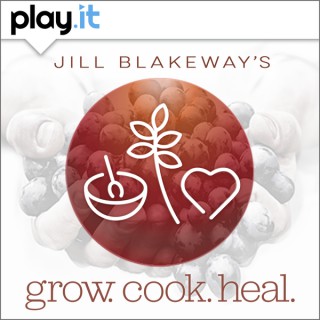Podcasts about change food
- 3PODCASTS
- 3EPISODES
- 34mAVG DURATION
- ?INFREQUENT EPISODES
- Apr 30, 2018LATEST
POPULARITY
Latest podcast episodes about change food
Diane Hatz, founder and executive director of Change Food and founder of the Change Food Video Library, is a creative marketing expert and events innovator who raises awareness about problems and solutions within the food and farming system while encouraging individuals to create their own change. From 2011-2015 she was the founder, organizer and host of TEDxManhattan "Changing the Way We Eat." Diane, who has dedicated 20 years to making positive change in the food industry, admits that in some ways she still doesn't understand "how people can look at profit and greed over [the wellbeing of] their neighbors." And yet, it's still happening every day in our food system, a fact that gets Diane, as she puts it, "pissed off and passionately involved." Currently she is working hard to bridge the divide between urban "eaters" and rural "producers," but she says this disconnect is not as simple as it once was.
Discovering What Will Help Your Child Develop Self-Regulation Skills: Different Strokes for Different Folks
Mom Enough: Parenting tips, research-based advice + a few personal confessions!
One of the major developmental tasks in early childhood is self-regulation, which includes settling into reasonably predictable and healthy patterns of eating, sleeping and other routines. Even as older children and adults, we are dysregulated at times, which can disrupt learning, good relationships and other aspects of our lives. This week’s Mom Enough guests, Robin Campbell and Cheryl Lundsgaard from St. David's Center for Child & Family Development, shed light on what self-regulation means, how we can help our children become self-regulated, and how important it is to discover what works best for each unique member of our family. What challenges have you encountered with your children’s self-regulation with respect to sleep? Eating? Other routines and activities? What have you learned about each child’s unique style, needs and preferences for establishing healthy, predictable patterns? In this week’s Mom Enough show what ideas did you get about how to address any regulatory issues with your children (or even yourself!)? For Possible Sensory and Regulatory Differences, click here. For Sensory and Motor Strategies that Support Regulation, click here. For How to Keep Food Fun, click here. For Problem Feeder Warning Signs, click here. For Setting the Stage for Sleep, click here. For Suggestions for Picky Eaters, click here. For Ways to Change Food, click here. For St. David’s Mental Health Services, click here.
Episode 47 – Change Food Fest 2016, Reversing Bone Loss, and an Asian Spicy Kale Chip Recipe.
Did you know that JetBlue has an urban farm at Terminal 5 at JFK Airport in New York? It’s one of the things Jill found out from her first guest on this week’s episode of GCH. Diane Hatz founded a not-for-profit called Change Food to promote sustainable and humane food production. Jill and Diane talk about advances in food technology, the urban gardening movement and how to combat food wastage. All of that and more will be covered at the upcoming Change Food Fest in New York and Diane gives us a preview of the event. Then we join Jill in the kitchen with Marcey Brownstein who is making her version of kale chips, with spicy, Asian flavors. Finally Jill chats with Dr Laura Kelly about her new book on reversing bones loss through diet. Laura first researched osteoporosis to help her own mother and then decided to share her program with the world. Laura explains to Jill why certain countries have lower levels of osteoporosis and the foods we should eat to support our bones.






